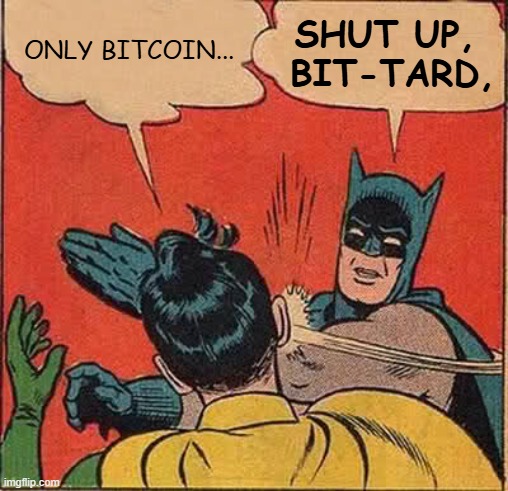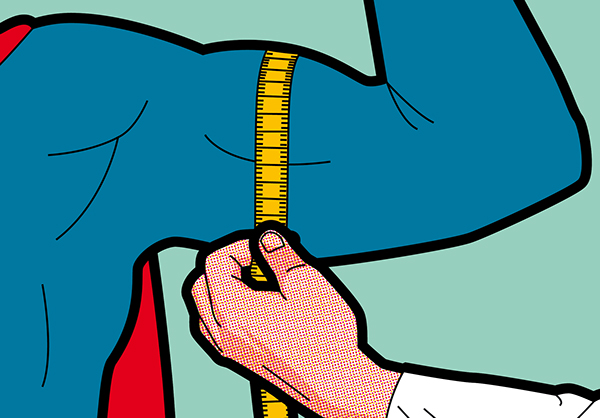𝐌𝐨𝐧𝐞𝐫𝐨 𝐗𝐌𝐑 | 𝐏𝐚𝐫𝐭 𝟐
𝕄𝕠𝕟𝕖𝕣𝕠 𝕚𝕤𝕥 𝕨𝕒𝕤 𝕕𝕚𝕖 𝕄𝕖𝕚𝕤𝕥𝕖𝕟 𝕧𝕠𝕟 𝔹𝕚𝕥𝕔𝕠𝕚𝕟 𝕕𝕖𝕟𝕜𝕖𝕟
Missed part 1? → https://app.getquin.com/activity/goYFRqRKvp
The image of Bitcoin as an anonymous currency for hackers, drug dealers, child pornographers, arms dealers, extreme libertarians, and other subjects persists. Besides the fact that it makes for a good story, it is also partly the truth. When Bitcoin lit the torch and shone as the only independent monetary light, in the darkness of the Internet, this was true. Bitcoin was without alternative. Morally and legally flexible service providers like Liberty Reserve or e-Gold failed because of their centralization and the fact that behind them were real people who held the strings. Sooner or later, the hammer of law enforcement struck down each of these services. Enter Bitcoin.
While the use of Bitcoin was initially a hurdle for law enforcement, this changed over time. The Bitcoin blockchain is openly viewable and every transaction can be accurately tracked. Bitcoin is only pseudonymous. This means that the allocation can be carried out retroactively, if one recognizes which real person has initiated a Bitcoin transaction.
I can already see the question marks. Imagine the online store of your trust is hacked, but only the customer numbers and the orders become public. As long as no one can assign your customer number to your name, there is no possibility that someone assigns your XXL dildo orders to you personally. In principle, however, this disclosure is possible at any time afterwards.
Now cryptocurrencies are not quite as obscure as they were in the early days. The biggest trading places for Bitcoin and Co are not some magic card buffoonery like Mtgox. Every major exchange collects the data of their users to fulfill KYC / AML requirements. This means that your transactions are automatically traceable back to you at any time. No matter if it's Bitcoin, Ethereum or any Shitcoins.
Monero is an exception here. In Monero, it is not possible to track transactions in a similar way as with Bitcoin. There is also no "richlist" for Monero like there is for other cryptocurrencies, because it is simply not possible. Transactions can only be viewed by the authorized parties, this can be the holder of the private key or someone who has received a view key from them. The view key enables optional transparency and allows insight without having to relinquish control. From the fact that no exact transaction histories can be created, it can also be inferred that 𝐗𝐌𝐑 𝐨𝐝𝐞𝐫 𝐝𝐞𝐬𝐬𝐞𝐧 𝐁𝐫𝐮𝐜𝐡𝐬𝐭ü𝐜𝐤𝐞 𝐰𝐢𝐫𝐤𝐥𝐢𝐜𝐡 𝐚𝐮𝐬𝐭𝐚𝐮𝐬𝐜𝐡𝐛𝐚𝐫 are.
To explain this in real world terms. Normally, all banknotes are the same. However, if serial numbers are noted, for example because part of a ransom, then these bills are no longer completely interchangeable. Depending on how widespread the information is, it becomes more or less difficult to issue them. After the bills have been issued, they can be traced because the transaction was probably carried out by the perpetrator or someone connected to him. It is similar with Bitcoin. Since each fragment can be traced back to its creation, this is problematic as soon as a transaction takes place in the chain that displeases someone in whatever way. In English, this is called tainted Bitcoin, which translates roughly as impure or tainted. Some will now say that there are no tainted Bitcoin and that all Bitcoin are the same. That may be technically true. But to show it again in the real world. If you can choose between a freshly printed bill and a bill with blood on it or swastika scribbles, which one will you take? Neither the bloody nor the smeared bill loses its value. These bills can be exchanged for clean ones at the Bundesbank. Nevertheless, everyone has the right to refuse "damaged" bills.
The situation is similar with Bitcoin. The Bitcoin are not damaged or impaired in their functionality. Although enough like e.g. cipherblade [1] have written their fingers to the bone "the vast majority of cryptocurrency users, concerns about having or obtaining tainted Bitcoin through no fault of their own are almost always without merit" One only has to search for closed Coinbase or Gemini accounts. Reasons for example gambling sites [2] or trading sites without KYC like Trade Ogre [3, 4]. You may think what you want about it, it doesn't take much imagination to imagine scenarios where transactions are blocked or not accepted by relevant players in the ecosystem.
The long historical tradition of gold has certainly been helped by the fact that its history has never been tied to any event or person. No matter if coin, ingot, jewelry, teeth or pharaoh's treasure, once melted down it is almost impossible to trace the gold back to its origin. Even with the most modern methods one comes here to limits. It is possible to distinguish between different purities or to make tracing possible by deliberate admixtures. However, gold itself as a pure element cannot be distinguished.
Another difference of Monero to Bitcoin is that 𝐌𝐨𝐧𝐞𝐫𝐨 𝐛𝐞𝐢 𝐝𝐞𝐧 𝐌𝐢𝐧𝐞𝐫𝐧 𝐧𝐨𝐜𝐡 𝐦𝐞𝐡𝐫 𝐰𝐞𝐫𝐭 𝐚𝐮𝐟 𝐃𝐞𝐳𝐞𝐧𝐭𝐫𝐚𝐥𝐢𝐬𝐢𝐞𝐫𝐮𝐧𝐠 𝐥𝐞𝐠𝐭. Bitcoin is now generated exclusively with specialized hardware. A single ASIC miner costs several thousand euros. Individual top devices have more hashing power than the entire BTC network in 2013. Monero switched to RandomX in 2019 for proof of work. RandomX was designed with the goal that specialized hardware is unprofitable and normal CPU are suitable for mining. This would currently allow me to generate about $2.4 per month with my 4 year old notebook. (Not taking into account electricity costs) This is an extreme difference to Bitcoin or other proof of work chains where mining with CPU has been completely hopeless for many years. Thus, the entry threshold for profitable mining is much lower than with Bitcoin. At the same time, the network is not automatically vulnerable. The graphics cards or ASICs that are used on other chains cannot be redesigned for Monero in a meaningful way. Now, surely one or the other already has botnets in mind. These are also a factor and
contribute from my point of view currently also to the fact that Monero is more decentralized than other cryptocurrencies. I would go into this in more detail in the next part.
Since solo mining is rather unprofitable for most participants in all crypto networks, mining pools have formed. However, these have the danger of accumulating "too much" computing power. This in turn can undermine decentralization. In Bitcoin, the idea of a decentralized P2P pool emerged relatively quickly. However, the BTC P2Pool is now effectively dead from what I could find. [5] A P2Pool was recently released for Monero. Only time will tell if this has a better chance. Currently, the Monero P2Pool provides about 4.7% of the computing power.
The amount of blockrewards (new coins) generated during mining is constantly falling for Monero, but will never reach zero. This lack of an upper limit is often interpreted very negatively, as an infinite supply is assumed. While Bitcoin's issuance is halved again and again (halving), Monero's issuance falls continuously, as mentioned. Currently, the new issuance in relation to the existing circulation is lower for Monero than for Bitcoin. Say 𝐚𝐤𝐭𝐮𝐞𝐥𝐥 𝐡𝐚𝐭 𝐌𝐨𝐧𝐞𝐫𝐨 𝐞𝐢𝐧𝐞 𝐠𝐞𝐫𝐢𝐧𝐠𝐞𝐫𝐞 𝐈𝐧𝐟𝐥𝐚𝐭𝐢𝐨𝐧 𝐚𝐥𝐬 𝐁𝐢𝐭𝐜𝐨𝐢𝐧. This will only reverse in the future when Bitcoin falls below Monero's issuance due to further halving. [7] The reason for this is the tail - issuance on Monero. As mentioned, there is no fixed cap. In order to keep mining attractive, a minimum amount of 0.6 XMR per block was set. If the new Bitcoin issue falls to 0, miners only earn money from the transaction costs.
In the next part, we'll look at why Monero's stakeholders are more heterogeneous than Bitcoin's and why that's good. Also, what are the reactions to privacy coins like Monero and how Monero reacts to them.
[1] https://cipherblade.com/blog/tainted-bitcoin-isnt-what-you-think-it-is/
[2] https://www.reddit.com/r/Bitcoin/comments/69f4tb/coinbase_closed_my_account/
[3] https://www.reddit.com/r/PirateChain/comments/p7mux0/gemini_closing_accounts_likely_for_interacting/
[4] https://www.reddit.com/r/PirateChain/comments/pcbntu/can_no_longer_withdrawal_from_gemini/
[5] http://109.229.69.94:9334/static/
[6] https://www.getmonero.org/2021/10/05/p2pool-released.html
[7] http://monero.supply















